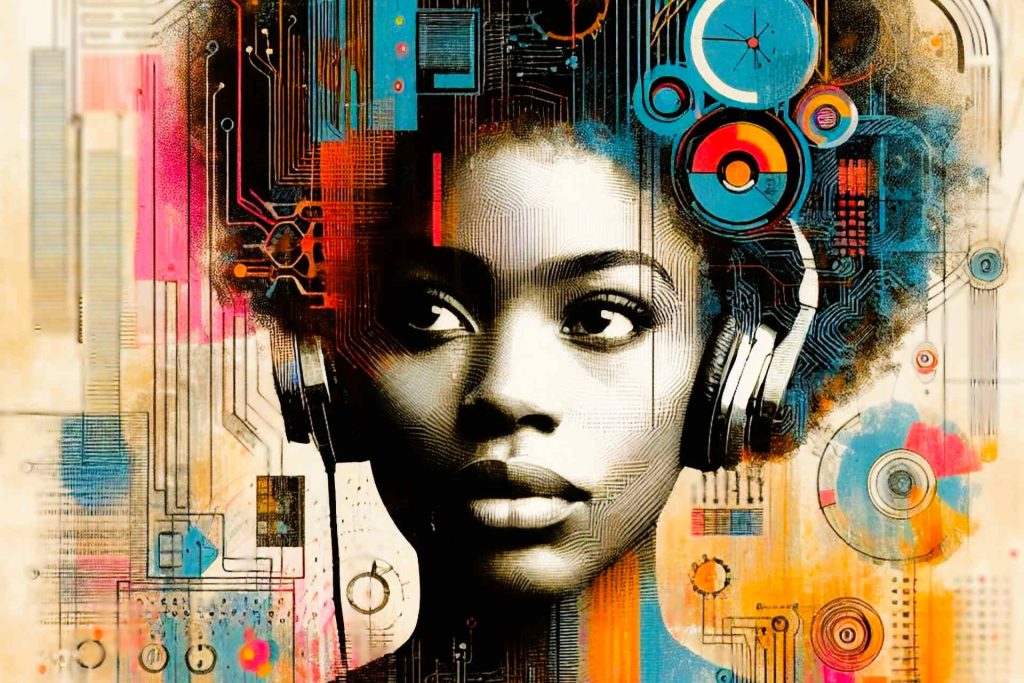
Forget lobby flowers and off-the-shelf wall decorations. Hotels and restaurants are rediscovering art – not as decoration, but as an experience that lasts. From optical illusions in Palermo to culinary art on canvas: if you’re not curating now, you’re losing out.
Today's guests want more than just service – they want emotion. Experience. Meaning. And this is exactly where art comes into play. Art is increasingly becoming a distinguishing feature in hospitality. It transforms places into stages, reception areas into galleries, restaurants into spaces for dialogue. Current projects impressively demonstrate how hotels and restaurants are not only setting themselves apart through curated art, but are literally creating topics of conversation – with lasting impact.
The new “Vintage Art Edition” from Gasteiner, in collaboration with Parov Stelar, shows that art can also pop on cans. The internationally acclaimed electro-swing artist, who also excels as a painter and designer, has staged the limited elderflower-lime edition not only musically but also visually. The result: a refreshing product that feels like a festival – for all the senses. The design of the 330ml can bears Parov Stelar's signature, his song “Pink Electric Shoes” provides the acoustic backdrop, and the recipe remains 100% natural as usual – no added sugar, no concentrate.
For restaurateurs and hoteliers, this is more than just a trendy product: the Art Edition is a stylish lifestyle statement for bars, minibars, and welcome drinks – and a prime example of how art, design, and cuisine can be combined in a format that is as impulsive as it is presentable. Those who curate cans today will be the talk of tomorrow.
“What we see is not what it is, but what we are.” With this sentence, artists Bertozzi & Casoni and curator Raffaele Quattrone have curated an exhibition at Villa Igiea by Rocco Forte Hotels that takes guests deep beneath the surface. Violin shells with cuts are reminiscent of Fontana's radical canvases – and produce a sound that is not audible, but tangible. Vase objects, inspired by Morandi and Van Gogh, challenge perception through abstraction.
And this is precisely the highlight: the artworks interact with the historic hotel itself. Guests become not just spectators, but part of the staging. The location becomes an amplifier of inner journeys – and thus a reflection of the exhibition.
What this means for hosts: The exhibition proves that hotels do not need a sterile gallery to effectively display art. Rather, the art merges with the location, becoming tangible and integrated. This generates conversation, atmosphere – and social media content with depth.
Hardly anyone knew that Juan Amador, one of Europe's most renowned chefs, is also an artist. Under the alias Rodama, he presented his first major solo exhibition at the Nitsch Foundation in Vienna. Title: “Convergence”.
The works? Large-format, colorful, abstract. The message? Reduction, intensity, emotion. The parallels to his cuisine are obvious. Here, the boundaries between culinary art and visual art blur – both imbued with precision and passion.
For restaurateurs, this raises an exciting question: Why not become an art platform yourself? Why not make chefs, sommeliers, and hosts visible beyond the plate? Authenticity is the new luxury – especially in artistic expression.
Art is not just visual. In the brewing scene, too, it is conceived as a multisensory experience: Trumer & Brauton have teamed up with the band Bon Jour to brew a French saison that sounds like their music. Art meets hops – an experience that extends from the bottle to the playlist.
This shows that staging becomes a consumer experience. Through creative collaborations, restaurateurs can not only tap into new target groups, but also imbue products with cultural context – and thus generate genuine desirability.
The Landromantik Hotel Oswald goes one step further: it tells regional history – through glass. The in-house bar shines with rare Poschinger glasses, and the entire hotel becomes a stage for local glass art tradition.
Complemented by collaborations with glassworks, hands-on experiences, and elegant design, the result is storytelling that cannot be copied. Here, glass becomes an emotional medium – and the hotel becomes a host that conveys culture.
Anyone who thinks art is elitist or quiet will be proven wrong at The Knast Berlin: a former women's prison has been transformed into a cultural and gastronomic hotspot. Exhibitions by LGBTQIA+ artists, burlesque, shibari performances, and an adults-only philosophy make The Knast a safe space—and a vibrant total work of art.
Conclusion: Those who dare to embrace art will win. Guests want attitude, not just style. And art conveys exactly that—whether provocative, poetic, or participatory.
Art is not an ingredient, it is the new menu. For hotels and restaurateurs, this means: Experience beats furnishings: Art anchors emotion – and makes spaces memorable.
Our recommendation: those who stage today will inspire tomorrow. Use your establishments as a stage, your hosts as storytellers – and transform your business into a living work of art.

Art has long been more than just a decorative element; it is increasingly becoming a strategic tool for branding and guest experience. The hospitality sector in particular demonstrates how powerful creative staging can be: it transforms spaces into emotional meeting places, creates identification, and remains in the memory.
Anyone who wants to create atmosphere today has to think beyond colors and shapes and tell stories that touch people. The following article highlights how design and art can be used specifically to not only welcome guests, but also to inspire them in the long term.
After five years of renovation, the Traube Rattenberg has reopened—and as a boutique hotel, it masterfully combines monument preservation, design, and genuine hospitality. A building that not only preserves history, but also brings it to life.


Forget lobby flowers and off-the-shelf wall decorations. Hotels and restaurants are rediscovering art – not as decoration, but as an experience that lasts. From optical illusions in Palermo to culinary art on canvas: if you’re not curating now, you’re losing out.